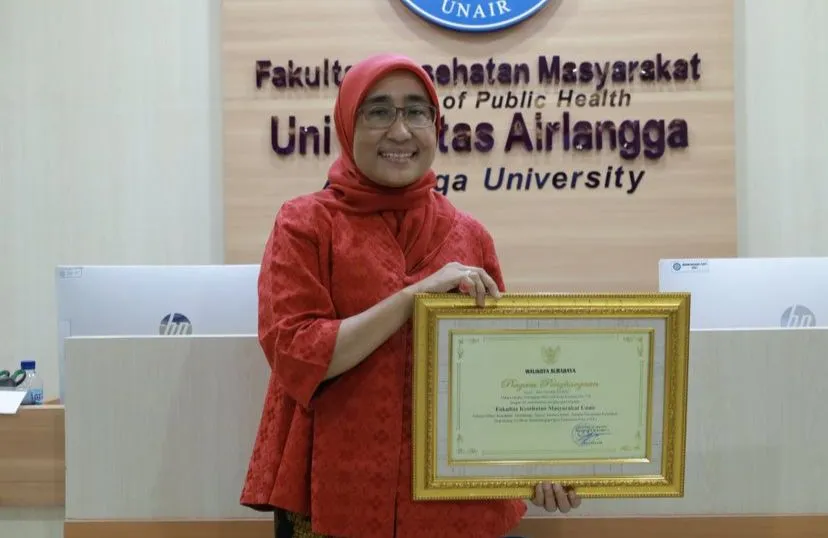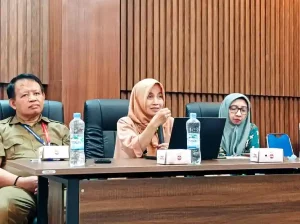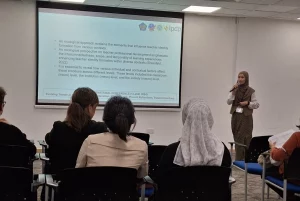UNAIR NEWS – In commemorating Surabaya City Anniversary on May 31, 2023, Faculty of Public Health ( FKM ) Universitas Airlangga (UNAIR) received an award from the Mayor of Surabaya. The award was given for FKM’s contribution to eliminating Open Defecation Free (ODF) or Stopping Open Defecation in Surabaya.
FKM has a collaboration with Wahana Visi Indonesia, whose one of its programs to improve public health status. The real proof is realizing environmental health by helping the city of Surabaya by reducing Open Defecation Free.
“FKM also plays a role in conducting research to support the realization of Open Defecation Free. And the research results will help the government design policies and run the Open Defecation Free program,” said Dr. Santi Martini dr. M Kes as the Dean of FKM UNAIR.
In line with SDGs
This achievement also aligns with the application of Sustainable Development Goal (SDG) 3: Good Health and Well-being and Goal 6: Clean Water and Sanitation. With more than a thousand beneficiaries, FKM UNAIR plays an essential role in planning various activities fulfilling the 5 pillars of environmental health.
“Of course with providing education regarding the dangers of open defecation. By providing education related to washing hands with soap, waste management, liquid waste, and defecation,” she explained.
Construction of communal toilets
Through FKM UNAIR’s vision to directly impact society, the community has a place to defecate with specifications following the environmental health standards, such as using a second reservoir as a basin of the waste flow.
“The community can continue to use healthy latrines built by the government or in cooperation with NGOs,” she said.
The communal toilets in various corners of the area certainly have a direct impact on reducing open defecation, which leads to various infectious diseases in the area. Utilizing communal toilets will create communal and vertical behavior to eliminate open defecation.
“This success is marked by no more people defecating into rivers or on the ground. Followed by the decrease in cases of typhus and diarrhea from the local Puskesmas monitoring, “ she said.
Advanced waste management
Not only focused on promoting defecation-free efforts. UNAIR FKM program also presents a complex environmental health impact, apart from the Surabaya Mayor’s award, with the creation of sustainable household waste management.
The implementation of Open Defecation Free is expected to be sustainable for generations. And the next generation can imitate the healthy life implemented in their families.
“The implementation of Open Defecation Free is the start of breaking the habit of open defecation around them. So that later, the people in their families, young and old, will no longer defecate openly,” she concluded.
When they have a new family, they can also pass it on through education to their children and grandchildren later. And Surabaya will be protected from disease outbreaks transmitted through feces.
Author: Monika Astria Br Gultom
Editor: Feri Fenoria
Read also:









